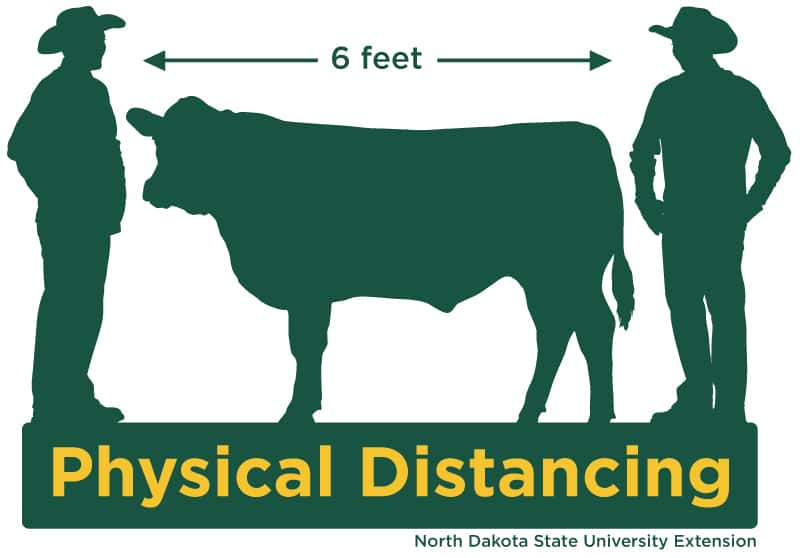
Image and content provided by NDSU Extension
The agriculture and food industries have been deemed essential services, and reducing the risk of contracting an illness such as COVID-19 is important to maintaining farm and ranch operations.
“COVID-19 may change the way you farm,” says Katelyn Hain, North Dakota State University Extension’s agriculture and natural resources agent for Grand Forks County. “While farm work may seem isolated, think about all the times you connect with others either on your farm or at agribusinesses.”
Here are 10 ways farmers and ranchers can protect themselves, their families and others from COVID-19:
- Wash your hands often. Use hand sanitizer when soap and water are not available.
- Clean and disinfect high-touch shared areas after each use in shops, tractors, other equipment and vehicles. Allow for airflow in shared spaces.
- Keep your distance. Assign tools, tractors, pickups, etc. to specific individuals as much as possible.
- Make sure individuals on your farm who may be considered higher risk or live with others who are considered at risk, as well as their equipment, are distanced from others as much as possible.
- Hold daily meetings virtually. Do not ask employees to show up at the shop in the morning for meetings. Hold meetings in large open areas, such as outdoors.
- Limit the number of individuals in a vehicle as much as possible when driving field to field. Use a cloth mask to cover your nose and mouth when around others.
- Limit family members or nonessential people from visiting during work. Skip ride-alongs to keep yourself and other employees safe. Do not meet for family dinners in the field.
- Stay home if you or a family member gets sick.
- Encourage all farm employees to keep their social circles tight. Avoid close contact (6-foot distance) with individuals if you must go out.
- Develop and communicate a cohesive plan involving all employees. Outbreaks tend to happen when a plan is not developed or some are not taking the situation seriously.
“Sending a clear message to employees about your policies and procedures can help individuals in the operation take precautions seriously,” says Angie Johnson, NDSU Extension’s agriculture and natural resources agent in Steele County. “A culture that includes worker safety shows that you have thought about how to protect your workers and that they are important to your operation.”
Visit NDSU’s COVID-19 in agriculture website at https://www.ag.ndsu.edu/farmsafety/covid-19 for more information.
